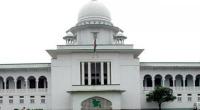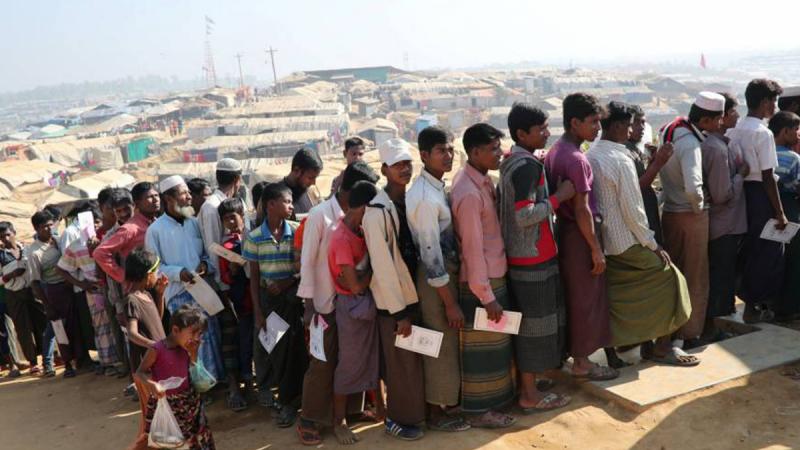 At a time when many wealthy nations are closing their borders to thousands of distressed refugees, Bangladesh has set an example for the world by opening her arms to the helpless Rohingya.
At a time when many wealthy nations are closing their borders to thousands of distressed refugees, Bangladesh has set an example for the world by opening her arms to the helpless Rohingya.
“Bangladesh opened its border - in a world where, unfortunately, many borders are still closed,” the UN secretary general said at a joint press conference in Dhaka with the president of the World Bank Group, Jim Yong Kim.
Despite being a small, natural disaster-prone and overcrowded country, Bangladesh has taken in over 700,000 forcibly displaced Myanmar nationals since the state-run military began its brutal campaign in August last year.
This is in addition to the already existing three lakh residing in the country.
“Bangladesh has accepted to protect and assist more than one million Rohingyas at the present moment (despite) being a developing country with many challenges in her own development process,” underlined the UN chief, adding that it’s the right moment to appeal to the international community to express a much stronger solidarity, with the Rohingya and Bangladesh.”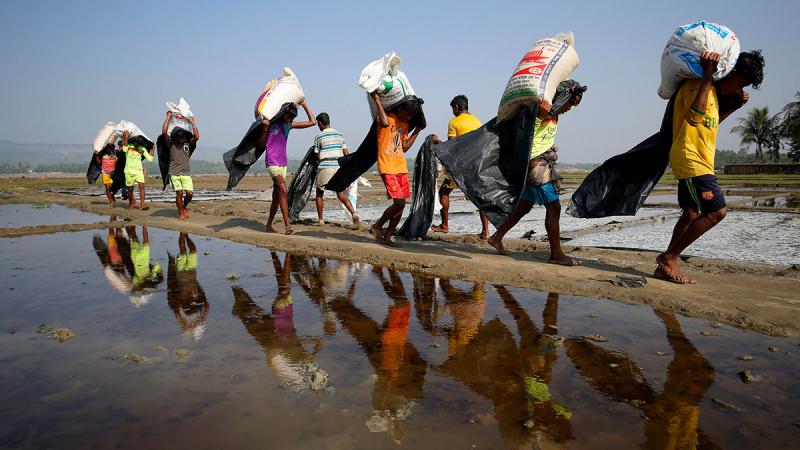 On Jun 28, the World Bank announced nearly half-a-billion dollars in grant-based support to help Bangladesh address the needs of Rohingya refugees in sectors such as health, education, water and sanitation, disaster risk management and social protection.
On Jun 28, the World Bank announced nearly half-a-billion dollars in grant-based support to help Bangladesh address the needs of Rohingya refugees in sectors such as health, education, water and sanitation, disaster risk management and social protection.
“Bangladesh has shown great leadership in this evolving humanitarian crisis by providing refuge to the Rohingya people,” Jim Yong Kim said.
We are deeply moved by the suffering of the Rohingya people and stand ready to help them until they can return home in a safe, voluntary, and dignified manner, he added.
Just feeding one million refugees each day costs almost $800,000, according to the World Food Programme (WFP).
“The challenges are simply to provide food for so many people,” WFP Country Director in Bangladesh, Christa Rader, told Dhaka Tribune.
“We have only three food commodities (and) people do not want to live for months or years on rice, pulses and oil, so we have to diversify the eating options.”
Rader said that diversification can be brought through the use of electronic vouchers. 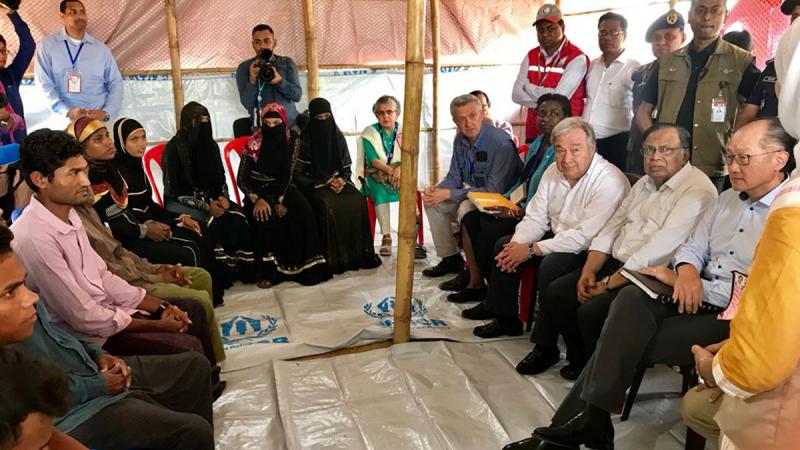 “These are cards which are uploaded every month and contain about nine dollars – Tk. 750 per person, per month. A household can purchase from 19 food items in shops,” she said.
“These are cards which are uploaded every month and contain about nine dollars – Tk. 750 per person, per month. A household can purchase from 19 food items in shops,” she said.
The government plays a significant role in managing the overall activities in the refugee camps, including food distribution. While visiting the refugee camps in Cox’s Bazar Sep last year, Prime Minister, Sheikh Hasina, said that Bangladesh will provide for the Rohingya refugees.
“If we can feed 160 million people, we can feed another two or five or seven hundred thousand people,” she said. 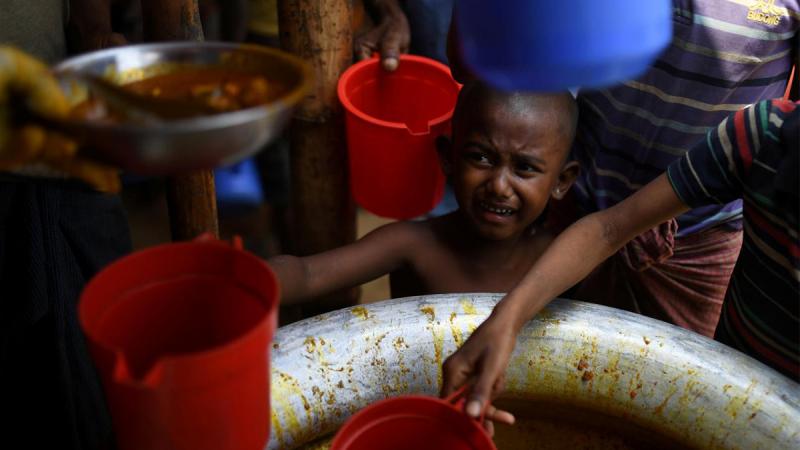 In addition to providing food, medicines and other essentials, the Bangladesh government has taken necessary steps to monitor and control extremism and militancy in the Rohingya camps.
In addition to providing food, medicines and other essentials, the Bangladesh government has taken necessary steps to monitor and control extremism and militancy in the Rohingya camps.
Cox’s Bazar Deputy Commissioner, Md Kamal Hossain, told the Dhaka Tribune that the administration was keeping an alert eye on the camps.
“A number of detective agencies are working on the ground to monitor the overall law and order situation,” he said.
Additional law enforcement members have been deployed there (and) are working closely to prevent the emergence of any kind of extremist ideology, Kamal Hossain reassured. 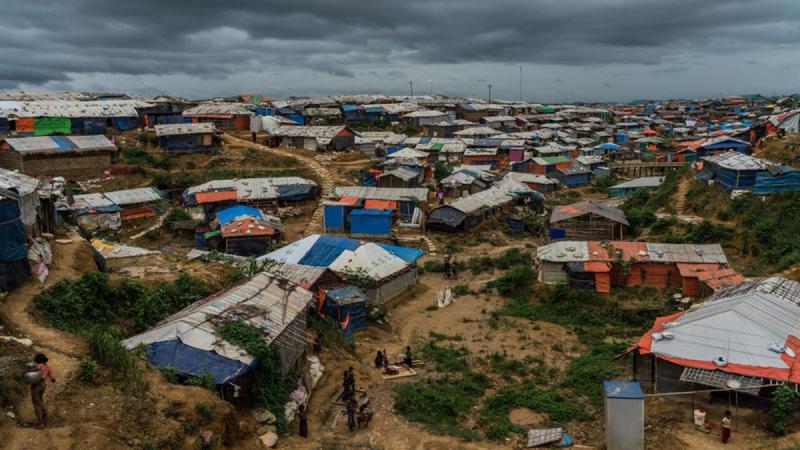 Cox’s Bazar Superintendent of Police, AKM Iqbal Hossain, said there are five police camps to monitor law and order situation in the refugee camps.
Cox’s Bazar Superintendent of Police, AKM Iqbal Hossain, said there are five police camps to monitor law and order situation in the refugee camps.
“There are another 13 check posts around the region; our intelligence monitoring continues at all times.”
Additional detectives from different parts of the country have been brought into Cox’s Bazar, the police officer confirmed.
 National
National
30844 hour(s) 3 minute(s) ago ;
Evening 10:57 ; Tuesday ; Apr 23, 2024
Food for Rohingyas to be diversified: vigilance to detect radical elements
Send
Mahadi Al Hasnat
Published : 13:54, Jul 12, 2018 | Updated : 13:54, Jul 12, 2018
Published : 13:54, Jul 12, 2018 | Updated : 13:54, Jul 12, 2018
0 ...0 ...
/tf/up-ni/
Topics: Top Stories
- KOICA donates medical supplies to BSMMU
- 5 more flights to take back British nationals to London
- Covid19: Rajarbagh, Mohammadpur worst affected
- Momen joins UN solidarity song over COVID-19 combat
- Covid-19: OIC to hold special meeting
- WFP begins food distribution in Cox’s Bazar
- WFP begins food distribution in Cox’s Bazar
- 290 return home to Australia
- Third charter flight for US citizens to return home
- Dhaka proposes to postpone D8 Summit
Unauthorized use of news, image, information, etc published by Bangla Tribune is punishable by copyright law. Appropriate legal steps will be taken by the management against any person or body that infringes those laws.
Bangla Tribune is one of the most revered online newspapers in Bangladesh, due to its reputation of neutral coverage and incisive analysis.
F R Tower, 8/C Panthapath, Shukrabad, Dhaka-1207 | Phone: 58151324; 58151326, Fax: 58151329 | Mob: 01730794527, 01730794528


